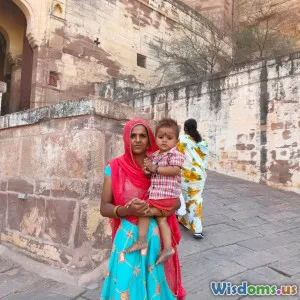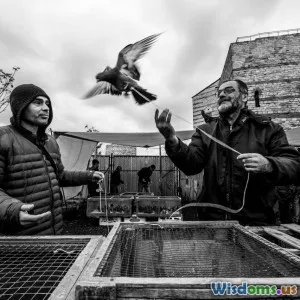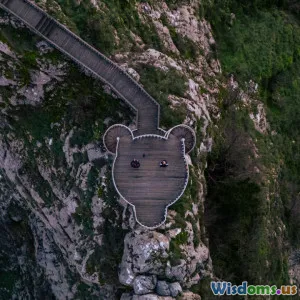
Exploring Cultures: A Traveler's Guide
6 min read Unlock the art of cultural immersion with practical tips and insights for travelers seeking deeper global experiences. (0 Reviews)
Exploring Cultures: A Traveler's Guide
Traveling is no longer just about ticking landmarks off a checklist. More than ever, travelers are seeking authentic, meaningful interactions that deepen their understanding of the world. Exploring cultures firsthand provides an exhilarating opportunity to see through the lens of diverse customs, languages, and traditions. But how does one respectfully and fully embrace local cultures? This guide uncovers practical strategies, real-world insights, and inspiring examples to enrich your cultural explorations.
Why Explore Culture While Traveling?
Cultural exploration elevates travel from passive observation to active participation. According to a 2018 survey by the Adventure Travel Trade Association, 65% of global travelers value immersive cultural experiences highly when choosing a destination.
Understanding cultural nuances strengthens empathy, breaks stereotypes, and fosters global connections. It can transform a vacation into a journey of self-discovery and mutual respect. For instance, participating in a traditional tea ceremony in Japan does not only provide sensory delight but opens a window into Japanese values such as mindfulness and community harmony.
Preparing for Cultural Immersion
Research and Learn
Before setting foot in a new country, investing time in learning about its history, customs, religious beliefs, and social etiquette pays huge dividends. Reliable resources include travel books, documentaries, podcasts, and authentic travel blogs. For example, some Middle Eastern countries have strict dress codes and rules about public conduct—knowing this beforehand helps avoid unintended disrespect.
Language Basics
Even a few phrases in the local language can bridge gaps and show respect. Greetings, thank you, and basic questions like "Where is..." create goodwill. Apps like Duolingo or Phrasebook by Lonely Planet offer excellent starter kits.
Engaging Respectfully with Local Communities
Participate in Traditions
Engagement can mean attending festivals, crafts workshops, cooking classes, or local sporting events. The Holi Festival in India, or colorful Dia de los Muertos ceremonies in Mexico, invite visitors to witness centuries-old traditions and joyous communal spirit firsthand.
Support Local Economies
Choosing locally-owned accommodations, eateries, and craft markets helps channel tourism revenue back into the community, promoting sustainable development. For example, booking a homestay through platforms like Airbnb can facilitate genuine interaction while economically benefiting hosts.
Observe and Adapt
Cultural environments have context-sensitive norms. In Bali, for example, temple visits require a sarong and respectful behavior. Observing how locals behave and matching that tone is key to positive experiences.
Avoiding Common Pitfalls
Steer Clear of Cultural Appropriation
Imitating or using cultural symbols without understanding or permission is disrespectful. Tourists wearing sacred garments as fashion statements or insensitive portrayals in photographs exemplify this issue. Awareness and sensitivity are crucial.
Photography Etiquette
Always ask permission before photographing individuals, especially in indigenous communities or ceremonies. Not only is it polite, but it honors personal and sometimes spiritual boundaries.
Real-World Example: Costa Rica's Pura Vida
Costa Rica’s national philosophy, "Pura Vida," meaning "pure life," exemplifies cultural identity blending lifestyle with humility and joy. Travelers immersing themselves here find locals inviting, eco-conscious, and community-oriented. Joining a wildlife conservation project, for instance, delivers immersive education and fosters environmental stewardship.
Benefits Beyond the Trip
The knowledge and memories from cultural exploration have lasting impacts. Travelers often return with new perspectives, improved cross-cultural communication skills, and a greater sense of global citizenship. These experiences nurture tolerance and inspire advocacy for cultural preservation.
Conclusion
Exploring cultures as a traveler is both a privilege and a responsibility. It requires preparation, open-mindedness, and a desire to deepen connections beyond the surface. By approaching travel with respect and curiosity, every journey becomes more enriching—not just for the traveler, but for the communities visited.
In the end, embracing cultural diversity during your travels transforms every trip from a simple vacation into a powerful narrative of shared human experience. As the famous traveler Ibn Battuta said, "Traveling—it leaves you speechless, then turns you into a storyteller."
Embrace your next adventure as a cultural explorer and create stories worth telling.
Rate the Post
User Reviews
Popular Posts




















